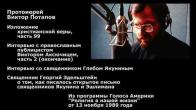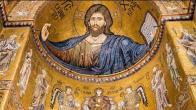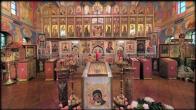You are here
St. Maximus the Confessor
21 January/3 February
A mighty spiritual giant, who was broken by nothing and by no one, whose image does not fade with the ages, Venerable Maximus the Confessor is a faithful indicator, even till now, of how one may follow after Christ by that path by which Saint Maximus so faithfully followed the Lord.
Saint Maximus was born at the end of the sixth century in Constantinople of noble parents and received an excellent philosophical and theological education. Under the Emperor Heraclius (610641), he was among the imperial counsellors. Seeing the spread of the heresy of the Monothelites, with which even the Emperor himself was infected, (the Monothelites rejected a human will in Jesus Christ, whereby they diminished the significance of His sufferings on the Cross; the Monothelites incorrectly thought that the human nature of Jesus Christ was swallowed up and annihilated by His Divine nature), he left the imperial palace and joined the monks in the Chrysopolis Monastery. Subsequently, Venerable Maximus became the superior of this monastery.
A profound theologian of his time and a strict defender of Orthodoxy, Maximus very ably and successfully demonstrated the incorrectness of the Monothelite heresy, for which he was subjected to persecutions many times by the enemies of the Church.
Venerable Maximus' arguments in behalf of Orthodoxy were so powerful that after a public debate on the faith with Pyrrhus, the Monothelite Patriarch of Constantinople, the latter renounced the heresy in 645.
Venerable Maximus was sent into exile several times and each time would again be called back to Constantinople. The heretics often passed from admonitions and promises to threats, abuse and the beating of Venerable Maximus.
On one occasion, Saint Maximus was called back to Constantinople, where the imperial grandees, Troilus and Sergius, again subjected him to interrogation. They began to accuse Saint Maximus of pride for esteeming himself as the only Orthodox who is being saved and for considering all others to be heretics who are perishing.
To this, the Saint replied: "When all the people in Babylon were worshipping the golden idol, the Three Holy Youths did not condemn anyone to perdition. They did not concern themselves with what others were doing, but took care only for themselves, so as not to fall away from true piety. In precisely the same way, Daniel also, when cast into the den, did not condemn any of those who, in fulfilling the law of Darius, did not want to pray to God; but he bore in mind his duty, and desired rather to die than to sin and be tormented by his conscience for transgressing God's Law. God forbid that I, too, should condemn anyone, or say that I alone am being saved. However, I would sooner agree to die than, having apostatized in any way from the right faith, endure the torments of my conscience."
Then Troilus and Sergius began to point out to Saint Maximus that already the whole Christian world recognized the Monothelite Patriarch of Constantinople as legitimate, that all the Eastern Patriarchs and their locum tenentes were in communion with him, and that the plenipotentiary representatives of the Roman Pope will serve with the Patriarch and commune with him. Thus, he is the only one remaining in the whole world who does not recognize the Patriarch.
The Saint answered: "If even the whole universe should begin to commune with the Patriarch, I will not commune with him. For I know from the writings of the holy Apostle Paul that the Holy Spirit will give over to anathema even the angels, if they should begin to preach any other gospel, introducing anything new."
Venerable Maximus remained unshaken in his religious convictions. Finally, they cut off his right hand and tongue, so that he could not proclaim or defend the truth either by word or by pen. Then they dispatched him to confinement in Lazov (a region of Mingrelia) in the Caucasus. Here, Venerable Maximus died on the 13th of August 662, knowing in advance of his end.
Venerable Maximus wrote many theological works in defense of Orthodoxy. Especially valuable are his instructions on the spiritual and contemplative life, some of which were included in the "Philocalia" (a collection of patristic instructions on prayer and the ascetic life). In these ascetical instructions, the spiritual profundity and perceptiveness of Saint Maximus' thought is revealed. Also, an explanation of the Liturgy that has a great theological significance has come down to us from him.
The example of Venerable Maximus' courageous stand shows how an Orthodox Christian must behave in the face of apostasy general deviation from Christ's Truth.
Venerable Father Maximus, entreat God for us!
Relics in cathedral - monthly calendar
| S | M | T | W | T | F | S |
|---|---|---|---|---|---|---|
|
|
|
|
1
|
2
|
3
|
4
|
|
5
|
6
|
7
|
8
|
9
|
10
|
11
|
|
12
|
13
|
14
|
15
|
16
|
17
|
18
|
|
19
|
20
|
21
|
22
|
23
|
24
|
25
|
|
26
|
27
|
28
|
29
|
30
|
31
|
|
PARISH LIFE
Address of our Cathedral
While all the materials on this site are copyrighted, you may use them freely as long as you treat them
with respect and provide attribution on the Russian Orthodox Cathedral of St.John the Baptist of Washington DC.









